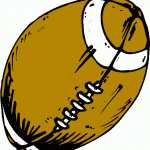Who Owns the Rights to Fantasy League Games?
 Many sports fans play fantasy baseball or football games. Should the operators of on-line fantasy games, which generate millions of dollars in annual revenues, have to pay a licensing fee to Major League Baseball, the NFL, and/or their players for using game statistics and player names? For example, does the unauthorized use of Brett Favre’s name and statistics in a for-profit NFL fantasy football game violate his right of publicity?
Many sports fans play fantasy baseball or football games. Should the operators of on-line fantasy games, which generate millions of dollars in annual revenues, have to pay a licensing fee to Major League Baseball, the NFL, and/or their players for using game statistics and player names? For example, does the unauthorized use of Brett Favre’s name and statistics in a for-profit NFL fantasy football game violate his right of publicity?
In my recently published article, A Triple Play For The Public Domain: From Delaware Lottery to Motorola to C.B.C., 11 Chapman L. Rev. 569 (2008), I argue:
The creation of a collateral product incorporating merely public domain information about a sports event or athletes’ performances, including fantasy league games, is not (and should not be) infringing — absent copyright or patent infringement in violation of federal law, or a likelihood of consumer confusion regarding its origin, endorsement, or sponsorship in violation of the Lanham Act.


